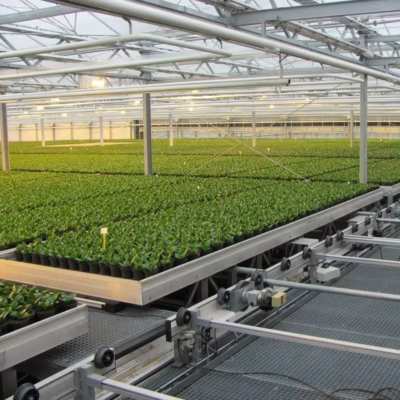Agriculture is at the heart of the UK’s rural economy, providing food, jobs, and vital contributions to the environment and local communities. Behind every productive field and successful harvest lies a network of systems and inputs that make modern farming possible. One of the most essential—yet often overlooked—resources in this process is fuel, particularly agricultural diesel, or red diesel. Without it, the machinery that powers UK agriculture would come to a standstill. Across the country, a range of agricultural diesel suppliers plays a critical role in keeping British farms running smoothly and efficiently.

What Is Agricultural Diesel?
Agricultural diesel, commonly known as red diesel, is a form of gas oil used in off-road machinery and vehicles, such as tractors, combine harvesters, generators, and irrigation systems. It is chemically similar to white diesel (the fuel used in road vehicles) but is dyed red to distinguish it and signify that it is taxed at a lower rate. This tax rebate is intended to reduce costs for essential industries like farming, horticulture, and forestry.
Red diesel is strictly regulated. It is illegal to use it in regular on-road vehicles or for non-permitted purposes. The UK government closely monitors its use, and heavy penalties apply for misuse. For farmers, however, it remains a legal, affordable, and indispensable source of energy.
The Importance of Agricultural Diesel Suppliers
Agricultural diesel suppliers are far more than fuel distributors. They are key service providers in the farming supply chain, offering solutions that help agricultural operations run safely, efficiently, and without interruption. Farmers, particularly during peak seasons such as sowing and harvesting, rely on timely fuel delivery. Even minor disruptions can delay fieldwork, damage crops, or increase labour and operational costs.
To meet these needs, agricultural diesel suppliers in the UK offer a wide array of services, including:
-
Scheduled and emergency deliveries to ensure fuel availability during critical times.
-
Fuel tank installation and maintenance, including bunded tanks that meet environmental and safety standards.
-
Fuel monitoring systems that track usage and provide automated reordering alerts.
-
Supply of additional products, such as AdBlue (for emissions control), lubricants, and fuel additives.
-
Expert advice on fuel storage, machinery care, and cleaner alternatives.
These services not only deliver convenience but also reduce the risk of downtime and help ensure that farms operate within legal and environmental guidelines.
Leading Agricultural Diesel Suppliers in the UK
Across the UK, a mix of national and regional fuel suppliers cater to the needs of the agricultural sector. Some of the most prominent include:
Certas Energy
As one of the UK’s largest fuel distributors, Certas Energy offers extensive coverage with depots across the country. Their agricultural services include red diesel, HVO fuel (a renewable alternative), fuel management systems, and 24/7 customer support. They are known for their dependability and breadth of service.
Crown Oil
With over 75 years of experience, Crown Oil has built a strong reputation for reliability, fast delivery, and environmental awareness. They supply red diesel, AdBlue, and HVO fuel, and offer carbon offsetting services to help farmers reduce their carbon footprint.
Watson Fuels
Founded in 1957, Watson Fuels has long supported rural customers with dependable diesel deliveries and tank solutions. Their broad network and expert advice make them a trusted supplier in England, Wales, and parts of Scotland.
Rix Petroleum
A family-run business with a strong local presence in rural areas of England and Scotland, Rix Petroleum is known for excellent customer service and flexibility. They provide red diesel, tank telemetry, and a responsive delivery service tailored to farming needs.
New Era Fuels and Ford Fuels
These regional suppliers also play a vital role in specific parts of the UK, providing reliable fuel supply and personalised service that helps them build lasting relationships with local farmers.
Thanks to these providers’ wide distribution networks and agricultural focus, farmers across the UK—regardless of location—have access to high-quality fuel and dependable service.
A Shift Toward Sustainability
While red diesel remains legal and widely used in agriculture, the UK’s broader commitment to net-zero emissions by 2050 is encouraging a shift toward cleaner, more sustainable energy sources. Agricultural fuel suppliers are adapting to meet this demand by offering renewable alternatives like Hydrotreated Vegetable Oil (HVO).
HVO is a synthetic diesel made from renewable raw materials such as used cooking oil and animal fats. It offers numerous advantages:
-
Up to 90% reduction in greenhouse gas emissions compared to red diesel.
-
No engine modifications required for most diesel machinery.
-
Cleaner combustion, reducing particulate matter and NOx emissions.
-
Longer shelf life and better cold-weather performance.
Many fuel suppliers are now incorporating HVO into their offerings and providing guidance to farmers looking to reduce their carbon impact. Some also assist with carbon offsetting and emissions tracking, helping farms align with environmental regulations and sustainability goals.
Choosing the Right Fuel Supplier
Selecting the right agricultural diesel supplier is a strategic decision for any farming business. Key considerations when choosing a supplier include:
-
Delivery reliability – Can they meet tight delivery windows during peak farming seasons?
-
Geographical coverage – Do they deliver to remote or hard-to-reach locations?
-
Customer service – Is 24/7 support available in case of emergencies?
-
Additional services – Do they provide fuel storage, monitoring, and renewable alternatives?
-
Pricing transparency – Are costs competitive, clear, and without hidden charges?
-
Sustainability focus – Do they offer HVO or other environmentally friendly options?
Working with a trusted, proactive supplier can improve operational efficiency, reduce risk, and support the long-term sustainability of a farm.
Conclusion
Agricultural diesel suppliers are the silent enablers of the UK’s farming success. Without their dependable fuel supply and broad range of support services, the machinery that powers British agriculture could not function effectively. As farming continues to face challenges ranging from climate change to regulatory shifts, these suppliers are evolving—offering cleaner fuels, smarter technology, and tailored support that meets the growing needs of a modern, sustainable agriculture sector.
For UK farmers, choosing the right fuel supplier is more than a transaction—it’s a partnership that supports productivity, resilience, and a greener future.


